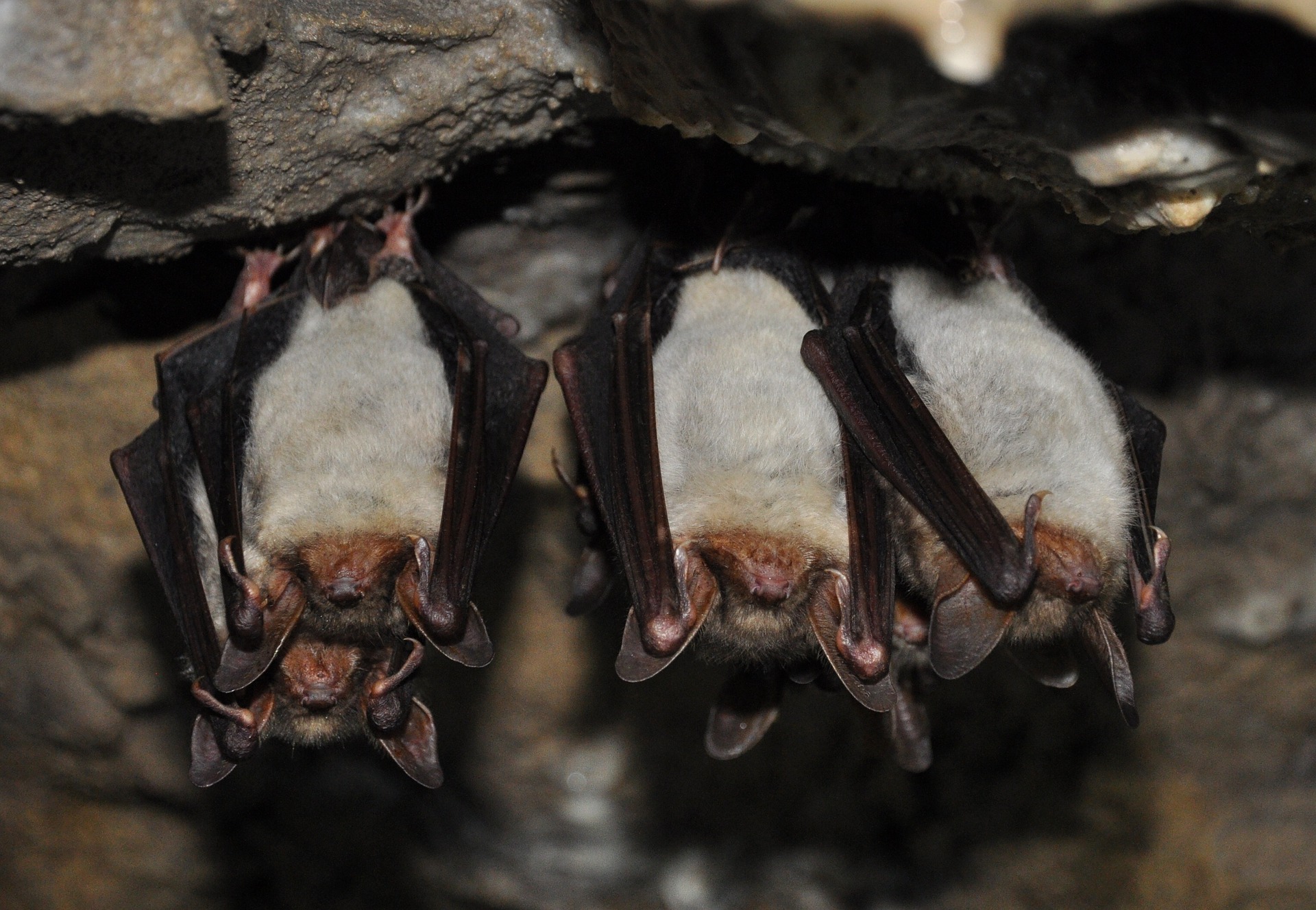Media release
From:
Peer-reviewed Experimental Study Animals/Vampire bats
Vampire bats form deep social bonds by grooming before sharing blood
For vampire bats, sharing blood with a roostmate is the mark of a true bond. Though these relationships are uncommon, they demonstrate behavior akin to what some might call friendship. In a paper appearing March 19 in the journal Current Biology, researchers show how social grooming and food sharing can build up trust among unrelated vampire bats to form life-saving bonds that can last a lifetime.
"We go from bats starting as strangers from different colonies to groupmates that act to save each other's life," says Gerald Carter (@gerrygcarter), a behavioral ecologist and assistant professor at Ohio State University. "This is the first animal study to look carefully at how a new cooperative relationship forms and can be maintained between complete strangers of the same species."
Vampire bats sustain themselves on only blood, and if a bat is unable to feed for 3 days, it runs the risk of starving. "They have this 'boom and bust' foraging experience, so they either hit it big and get a large blood meal or they're starved for that night. If they starve three nights in a row there is a high chance they'll die," says Carter. Because of this, vampire bats with close social ties can rescue their weakened partners from the brink.
To test how these bonds emerge, Carter and his colleagues collected bats from Las Pavas and Tolé, Panamá, two geographically distant sites. Bats were then placed either in pairs--one from each location--or in small mixed cohorts. For each group, the research team withheld food from one of the bats and observed how it interacted with its cagemates. Several bats, particularly those in the pairs, began grooming one another more over time, and in some cases, this eventually led to sharing blood with underfed companions.
"Even if you remove all ectoparasites from their fur, they still groom each other more than necessary for just hygiene," says Carter. "We think of social grooming as a kind of a currency--a way to gain tolerance and bond with another individual."
Furthermore, Carter suggests the increased grooming over time demonstrates "raising the stakes" of friendship. The idea of "testing the waters" or "raising the stakes" to build cooperative relationships was first proposed in a theory paper in Nature in 1998, but it has been difficult to demonstrate in animals. "When you make a cooperative investment in another individual, there is a kind of risk, because if you have a bad partner, you can be even worse off than if you had just avoided them altogether," he says. "So, what you could do is invest a little bit to test the waters. Then, if they invest back in you, that's a signal to ramp up your investment, and so on."
If pairs raise the stakes enough, one might provide food by regurgitating blood into the mouth of a hungry partner. Visually resembling a sort of French kiss, "food sharing in vampire bats is like how a lot of birds regurgitate food for their offspring. But what's special with vampire bats is they do this for other adults, eventually even with some previous strangers," says Carter. These social interactions could be a fundamental step in creating bonds that last years in vampire bats--some unrelated pairs have been found to travel together for more than a decade.
"The idea of using low-cost behaviors to build up to higher-cost investments can be something of much more general importance outside just food sharing in vampire bats," says Carter. This idea could be applied to other social animals such as primates and could provide insight into how humans build relationships.
For next steps, Carter wants to better understand how bats assess and choose their partners. "When two bats are unfamiliar, we have the opportunity to make a good partner or a bad partner and really see how that affects how the relationships form," he says. "So what we're trying to do now is use a variety of methods to really manipulate the relationships."



 International
International



